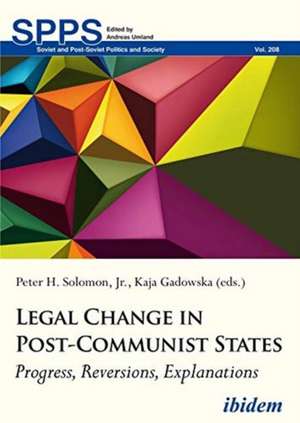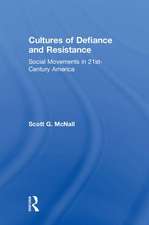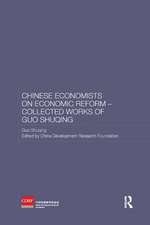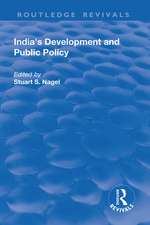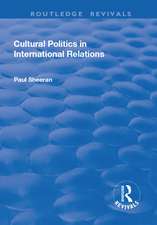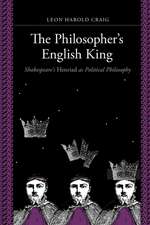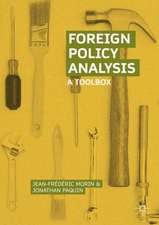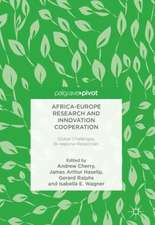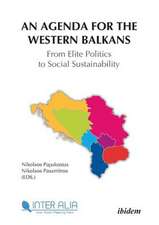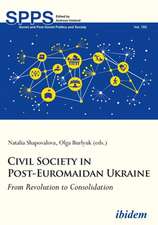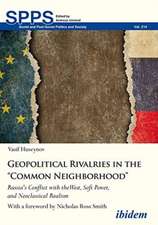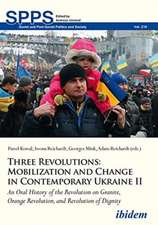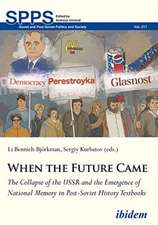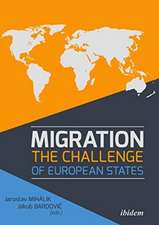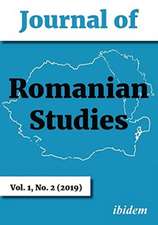Legal Change in Post–Communist States – Progress, Reversions, Explanations: Soviet and Post–Soviet Politics and Society
Autor Kaja Gadowska, Peter H. Solomo Jr.en Limba Engleză Paperback – 7 dec 2021
Din seria Soviet and Post–Soviet Politics and Society
- 12%
 Preț: 236.73 lei
Preț: 236.73 lei - 18%
 Preț: 451.05 lei
Preț: 451.05 lei - 8%
 Preț: 306.80 lei
Preț: 306.80 lei - 10%
 Preț: 208.12 lei
Preț: 208.12 lei - 25%
 Preț: 204.90 lei
Preț: 204.90 lei - 14%
 Preț: 195.51 lei
Preț: 195.51 lei - 14%
 Preț: 171.01 lei
Preț: 171.01 lei - 30%
 Preț: 196.14 lei
Preț: 196.14 lei - 14%
 Preț: 176.51 lei
Preț: 176.51 lei - 14%
 Preț: 196.39 lei
Preț: 196.39 lei - 25%
 Preț: 233.07 lei
Preț: 233.07 lei - 14%
 Preț: 172.79 lei
Preț: 172.79 lei - 30%
 Preț: 196.31 lei
Preț: 196.31 lei - 8%
 Preț: 152.07 lei
Preț: 152.07 lei - 8%
 Preț: 144.64 lei
Preț: 144.64 lei - 9%
 Preț: 353.44 lei
Preț: 353.44 lei - 11%
 Preț: 211.83 lei
Preț: 211.83 lei - 11%
 Preț: 210.09 lei
Preț: 210.09 lei - 25%
 Preț: 206.73 lei
Preț: 206.73 lei - 25%
 Preț: 235.82 lei
Preț: 235.82 lei - 11%
 Preț: 211.47 lei
Preț: 211.47 lei - 13%
 Preț: 230.33 lei
Preț: 230.33 lei -
 Preț: 305.09 lei
Preț: 305.09 lei - 8%
 Preț: 145.07 lei
Preț: 145.07 lei - 11%
 Preț: 203.51 lei
Preț: 203.51 lei - 13%
 Preț: 231.30 lei
Preț: 231.30 lei - 14%
 Preț: 171.01 lei
Preț: 171.01 lei - 11%
 Preț: 203.98 lei
Preț: 203.98 lei - 12%
 Preț: 234.90 lei
Preț: 234.90 lei - 30%
 Preț: 196.21 lei
Preț: 196.21 lei -
 Preț: 390.57 lei
Preț: 390.57 lei - 21%
 Preț: 296.26 lei
Preț: 296.26 lei - 25%
 Preț: 233.53 lei
Preț: 233.53 lei - 14%
 Preț: 179.17 lei
Preț: 179.17 lei - 13%
 Preț: 243.48 lei
Preț: 243.48 lei - 14%
 Preț: 196.77 lei
Preț: 196.77 lei - 18%
 Preț: 451.05 lei
Preț: 451.05 lei - 11%
 Preț: 211.00 lei
Preț: 211.00 lei -
 Preț: 150.42 lei
Preț: 150.42 lei - 9%
 Preț: 144.19 lei
Preț: 144.19 lei - 11%
 Preț: 210.57 lei
Preț: 210.57 lei - 11%
 Preț: 210.57 lei
Preț: 210.57 lei - 20%
 Preț: 178.24 lei
Preț: 178.24 lei - 10%
 Preț: 246.69 lei
Preț: 246.69 lei - 14%
 Preț: 295.30 lei
Preț: 295.30 lei - 30%
 Preț: 196.77 lei
Preț: 196.77 lei
Preț: 245.30 lei
Preț vechi: 281.47 lei
-13% Nou
Puncte Express: 368
Preț estimativ în valută:
46.94€ • 49.14$ • 38.84£
46.94€ • 49.14$ • 38.84£
Carte disponibilă
Livrare economică 15-29 martie
Preluare comenzi: 021 569.72.76
Specificații
ISBN-13: 9783838213125
ISBN-10: 3838213122
Pagini: 320
Dimensiuni: 150 x 210 x 20 mm
Greutate: 0.41 kg
Editura: Columbia University Press
Seria Soviet and Post–Soviet Politics and Society
ISBN-10: 3838213122
Pagini: 320
Dimensiuni: 150 x 210 x 20 mm
Greutate: 0.41 kg
Editura: Columbia University Press
Seria Soviet and Post–Soviet Politics and Society
Notă biografică
Peter H. Solomon, Jr. is Professor Emeritus of Political Science, Law and Criminology at the University of Toronto and Member of its Centre for European, Russian and Eurasian Studies at the Munk School of Global Affairs, where he teaches on law and politics in Russia. His books include Soviet Criminal Justice under Stalin (Cambridge, 1996), and in Russian as Sovetskaia iustitsiia pri Staline (ROSSPEN, 1998 and 2008), Reforming Justice in Russia, 1864¿1996: Power, Culture, and the Limits of Legal Order (editor; Sharpe, 1997), and Courts and Transition in Russia: The Challenge of Judicial Reform (with Todd Foglesong, Westview, 2000). In the new millennium his research has focused on judicial reform in Russia and Ukraine, where he participates in reform projects (e.g. for the World Bank, OSCE, and the Canadian International Development Agency), as well as on criminal law, procedure, and justice in authoritarian and transitional states. His recent publications include: ¿Law and Courts in Authoritarian States,¿ in the International Encyclopedia of Social and Behaivoral Sciences, 2nd edition (electronic); and ¿Post-Soviet Criminal Justice: The Persistence of Distorted Neo-inquisitorialism,¿ Theoretical Criminology, 19:2 (2015). He is on the Board of Trustees of the Institute of Law and Public Policy (Moscow) and the editorial boards of the journals Demokratizatsiya, Russian Politics and Law, Statutes and Decisions, and Pravosudie.
Kaja Gadowska is Associate Professor at the Institute of Sociology, Jagiellonian University, Krakow. She is the author of Political and Economic Clientelism: A Systemic Analysis of Clientelistic Networks in the Restructuring of the Polish Coal Mining Industry After 1989 (WUJ, 2003), which received the First Klemens Szaniawski Prize and the First Stanis³aw Ossowski Prize for the best PhD dissertation in the Social Sciences and Humanities. Her recent publications include National and International Anti-Corruption Efforts: The Case of Poland, in Fighting Corruption in Eastern Europe, ed. D. Schmidt-Pfister and H. Moroff (Routledge, 2012) and Dysfunctions of the Administration: The Civil Service in the Neo-Institutional Perspective (WUJ, 2015). Her research interests concentrate on dysfunctions of the public sphere, the impact of clientelist networks on the process of political and economic transformation in post-communist countries after 1989, as well as the problem of clientelism and corruption among Poland¿s political and economic elites. She is a reviewer for the journals Studia Socjologiczne, Polish Sociological Review, Public Governance, and Ask: Research & Methods quarterly. She is a member of the Board of the Polish Sociological Association.
